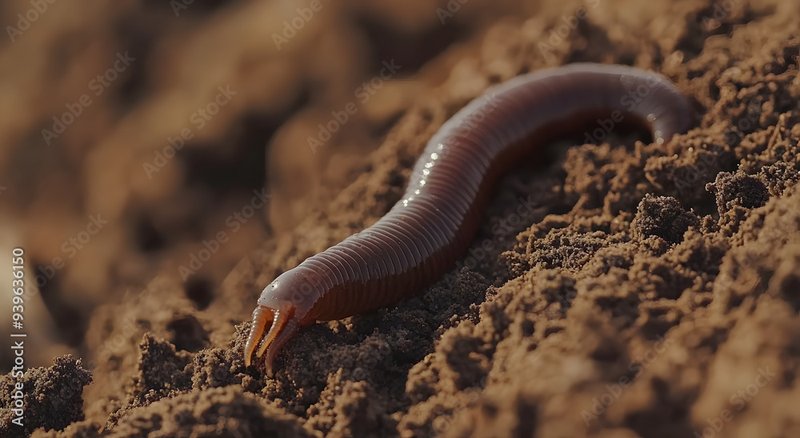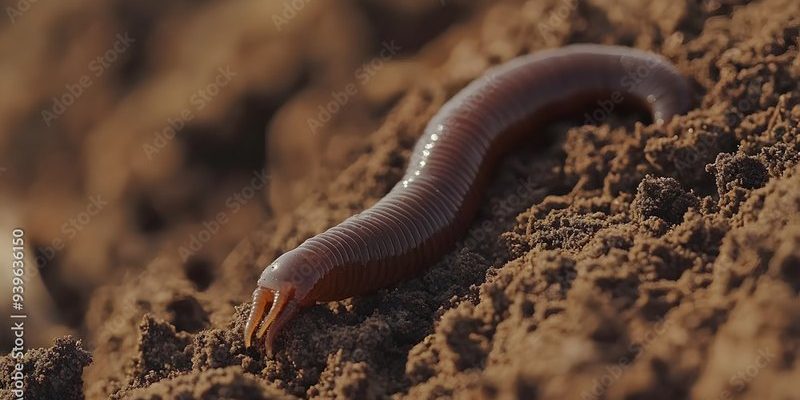
Imagine your garden soil as a sponge. When a sponge is full of water, it can’t absorb more. Similarly, soil that’s compacted doesn’t let air or water flow well. Earthworms are like tiny workers with shovels, creating tunnels that help air, water, and nutrients move freely. Their presence is an indicator of a healthy ecosystem. So, let’s dig deeper and explore the fascinating ways earthworms contribute to soil aeration and why it matters for our environment and gardens.
How Earthworms Improve Soil Structure
Earthworms are nature’s little builders. They consume organic matter like fallen leaves and decaying plants, breaking it down into nutrient-rich castings—think of these as plant food. As they munch their way through the soil, they’re also creating tunnels. These tunnels play a vital role in developing a healthy soil structure.
When earthworms create these passages, they’re actually helping to loosen compacted soil. It’s similar to how a good massage can relieve tension in your muscles. Looser soil allows roots to grow more freely and access essential nutrients and water. Without earthworms, the soil can become so dense that it makes it hard for plants to thrive. Their activity helps maintain a well-aerated and balanced environment for plants.
The Aeration Process Explained
So, how do earthworms actually aerate soil? Let me explain. As earthworms move through the ground, they push soil aside, creating spaces that fill with air. This process is called *soil aeration*. These air pockets allow oxygen to reach plant roots, which is crucial for their respiration. Without sufficient oxygen, roots can’t absorb the nutrients they need to flourish.
Interestingly, the tunnels formed by earthworms also help improve drainage. When it rains, water doesn’t just sit on top of compacted soil; instead, it flows into the earthworm tunnels, reducing the risk of waterlogging. This is especially important for gardeners because overly wet soil can lead to root rot, causing plants to struggle. In short, the aeration process brought on by earthworm activity is a win-win for both soil health and plant growth.
Benefits of Well-Aerated Soil
Achieving well-aerated soil leads to numerous benefits. Here are a few:
- Enhanced Nutrient Availability: Oxygen helps in the breakdown of organic matter, making nutrients more accessible to plants.
- Improved Water Infiltration: Well-aerated soil allows water to penetrate quickly, reducing runoff and ensuring that plants receive the moisture they need.
- Better Root Growth: When roots have room to spread, they can access more nutrients and water, leading to healthier plants.
- Reduced Soil Erosion: Healthier soil structure is less prone to erosion, meaning it stays put where it’s supposed to be.
These benefits highlight just how vital earthworms are in maintaining a balanced ecosystem. Without them, soil tends to be compacted, leading to poor plant health and growth.
The Role of Earthworms in Nutrient Cycling
In addition to aerating the soil, earthworms contribute significantly to nutrient cycling. As they consume organic matter, they break it down and excrete it as enriched castings. This process is similar to composting but happens naturally as earthworms do their thing underground.
These castings are packed with nutrients like nitrogen, phosphorus, and potassium—essential elements for plant growth. They act as a slow-release fertilizer, providing plants with a steady supply of nutrients over time. In a way, earthworms are nature’s very own composting machines! The more earthworms present, the richer the soil becomes.
What’s more, the presence of earthworms encourages microbial activity in the soil. Beneficial microbes help decompose organic materials, further enriching the soil and improving its structure. It’s a beautiful cycle of life—earthworms eat, excrete nutrients, and support other organisms, creating a thriving ecosystem beneath our feet.
How to Encourage Earthworm Activity in Your Garden
Want to ensure your garden is a welcoming place for earthworms? Here are some easy tips to encourage their presence:
1. **Add Organic Matter**: Incorporate compost or mulch into your soil. As it breaks down, it attracts earthworms looking for a tasty meal.
2. **Avoid Chemicals**: Pesticides and herbicides can harm earthworms. Opt for organic gardening methods to keep them safe and sound.
3. **Maintain Moisture**: Earthworms thrive in moist environments. Water your garden appropriately, but avoid overwatering, which can suffocate them.
4. **Minimize Soil Disturbance**: Practices like no-till gardening can keep the soil structure intact, providing a better habitat for earthworms.
By following these simple steps, you can create an environment that’s not only beneficial for earthworms but also promotes healthy, vibrant plant life.
The Connection Between Earthworms and Sustainable Farming
Sustainable farming relies heavily on maintaining healthy soil. Earthworms represent an important ally in this quest. Their ability to aerate soil, improve nutrient content, and increase microbial activity supports sustainable agricultural practices.
Farmers who prioritize soil health often find that promoting earthworm populations can lead to lower fertilizer costs and improved crop yields. It’s a practical and environmentally-friendly approach to farming. When farmers work in harmony with nature and its creatures, everyone benefits—especially the planet.
Implementing practices that support earthworm populations can help achieve long-term sustainability in farming. It’s a small shift that can make a big difference for our future and the environment.
Earthworms might be small and often overlooked, but their impact on soil aeration and overall soil health is immense. By creating airspaces, improving water drainage, and contributing to nutrient cycling, these little creatures play a crucial role in maintaining a thriving ecosystem. Whether you’re a gardener or a farmer, recognizing the importance of earthworms can lead to healthier plants and a healthier environment.
So, the next time you spot an earthworm while digging in the garden, take a moment to appreciate its hard work. They truly are the unsung heroes beneath our feet, tirelessly helping our plants breathe, grow, and thrive. Let’s celebrate these wriggly helpers and continue to nurture the ecosystems they create.

